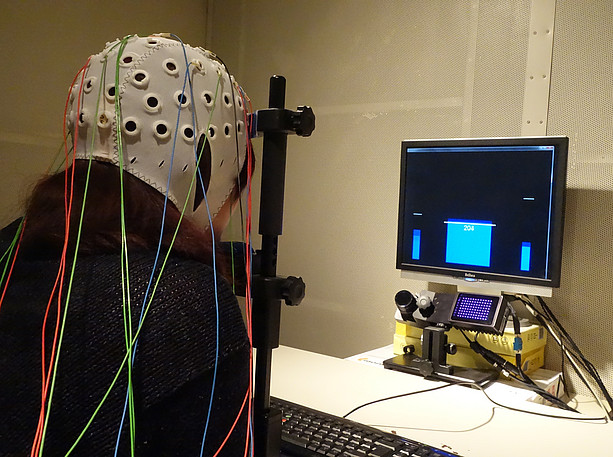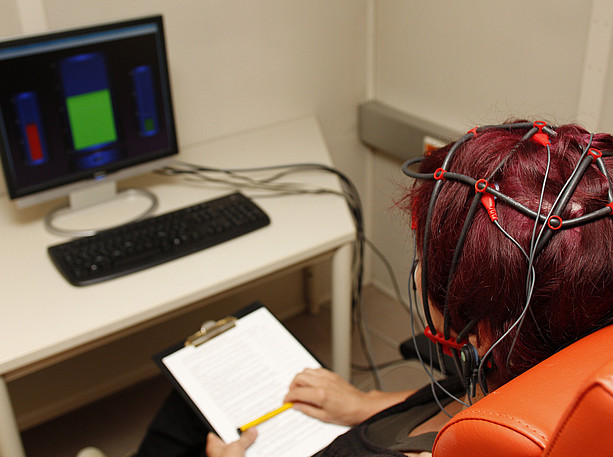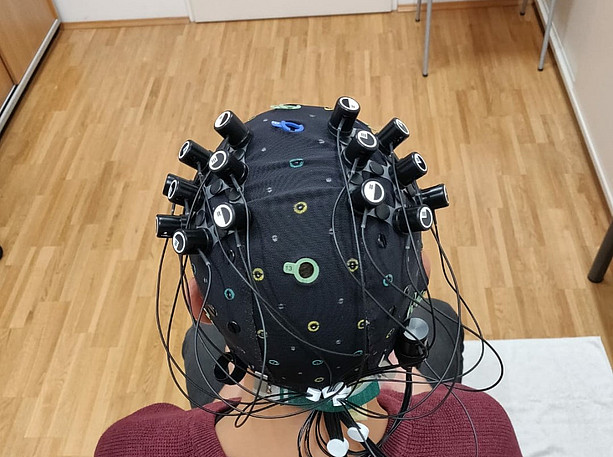Neurofeedback
Research focus
With neurofeedback, users can learn to consciously control certain brain activation patterns. Brain activity is recorded by neuroscientific methods such as the electroencephalogram (EEG) or other imaging techniques such as functional magnetic resonance imaging (fMRI) or near-infrared spectroscopy (NIRS), processed by computer algorithms in real time and then reported back to the neurofeedback user in the form of visual, auditory or tactile feedback. The most common clinical applications of neurofeedback are the treatment of attention-deficit/hyperactivity disorder (ADHD) and epilepsy. This is also the area with the most empirical research. However, neurofeedback is also used by various providers for the treatment of many other conditions, even to improve performance in sports or to enhance cognitive performance, but there is not yet enough empirical evidence to confirm its effectiveness with good experimental designs. One aim of our research is to investigate the mechanisms of action of neurofeedback and to get to the bottom of questions such as why some people manage to steer their own brain activation in a desired direction using neurofeedback training and others do not? What effects do psycho-social, neuronal or technical variables have on the success of neurofeedback and what else, apart from artifacts, must be taken into account when carrying out neurofeedback measurements? We also try to draw attention to the limitations of neurofeedback, but also to the potential possibilities, such as the use of neurofeedback in neurological rehabilitation.
Links to selected publications
Wood & Kober (2018)
Kober et al. (2018)
Kober, Grössinger & Wood (2019)
Ros et al. (2020)


